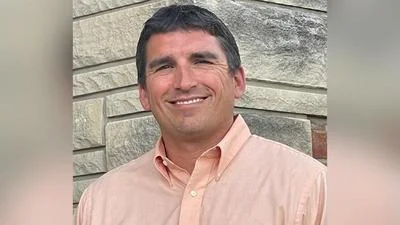The publication is reproduced in full below:
MATERNAL MORTALITY CRISIS
The SPEAKER pro tempore. The Chair recognizes the gentlewoman from Illinois (Ms. Kelly) for 5 minutes.
Ms. KELLY of Illinois. Madam Speaker, we are in the midst of a shameful healthcare crisis. In 2021, there is no reason that giving birth should be more dangerous for women today than it was for their mothers.
Despite declining rates and maternal mortality around the world, in the United States, the rates have been climbing in recent years. Decades of institutional racism in our society and our healthcare system have brought us to this moment.
Data released by the CDC last month shows that the maternal mortality crisis is only worsening, and the risks are even greater for Black women and other women of color. Black women are three times more likely, and indigenous women are more than twice as likely to die from pregnancy-related causes as non-Hispanic women. Even worse, more than two-thirds of the deaths are preventable.
Additionally, the rates of pregnancy-related complications are on the rise. And for every maternal death in the United States, there are approximately 100 women who experience severe maternal morbidity, or a
``near miss.''
As chair of the Congressional Black Caucus Health Braintrust and co-
chair of the Congressional Caucus on Black Women and Girls, I have seen so many examples of how the healthcare system fails Black women.
Maternal mortality is a complex crisis with inequities stemming from many factors, including access to care, standardization of care, bias, and racism. Pregnancy and birth should be one of the happiest times for a family, but for Black women that is too often not the case, and we must take action now to begin saving the lives and protecting the health of Black women.
One of the most pressing issues related to the maternal mortality crisis we must address is access to high-quality, affordable healthcare. We know there are major risks associated with becoming uninsured shortly after pregnancy.
{time} 1115
That is why I fought to have extended Medicare coverage included in the American Rescue Plan, so that women are able to receive postpartum care up to 1 year after birth instead of the existing 60 days of coverage.
But we need to take additional steps to incentivize every single State to permanently implement this policy. That is why, today, I am introducing the Helping Medicaid Offer Maternity Services Act, or Helping MOMS Act of 2021.
This bipartisan legislation will amend the American Rescue Plan to provide a permanent State option to extend postpartum Medicaid coverage from 60 days after delivery to a full year. The Helping MOMs Act would also authorize a 5 percent Federal medical assistance percentage rate for the first year that States adopt extended coverage.
Ensuring healthcare coverage for the entirety of the postpartum period will save lives and prevent needless complications that endanger the health of mothers and their babies. This is an important step forward, but is not the only change that is needed.
The Black maternal health crisis is a multifactorial epidemic, and solving it will require a multifaceted approach. That is why, tomorrow, I will reintroduce my Mothers and Offspring Mortality and Morbidity Awareness Act, or the MOMMA Act.
This comprehensive bill tackles a growing maternal mortality crisis and severe morbidity in five ways. The MOMMA Act will standardize maternal mortality and morbidity data collection across States and authorize a designated Federal agency to aggregate that data.
Maternal heath advocates agree that standardization of data across the country is critical in fully understanding this crisis and informing future decisions about how to improve women's healthcare.
This bill will empower the CDC to provide technical guidance and publish best practices to prevent maternal mortality and morbidity. It will authorize evidence-based national obstetric emergency protocol to save mothers' lives.
The MOMMA Act will expand healthcare coverage through the full postpartum year after giving birth.
Finally, the MOMMA Act will ensure improved access to culturally competent care training and workforce practices throughout the entire delivery continuum.
This aspect, in particular, is so important in addressing the harmful biases and misconceptions that are, unfortunately, persuasive through our healthcare system, but especially rampant when it comes to Black maternal health. We have already lost too many mothers to this crisis.
While many of us celebrated Mother's Day just a few weeks ago, families across the country mourned lost mothers and babies and remembered traumatic and unacceptable birth stories.
I have talked with husbands who are so frustrated with the way their wives were treated, and wonder if there is something else they could have done to protect them. I have heard the heartbreaking stories of tragedy and loss directly from these fathers. I have cried with them and shared their pain.
I introduce these bills, the Helping MOMS Act and the MOMMA Act, in honor of those mothers and families, and recommit myself to always fighting for the health and safety of women.
____________________
SOURCE: Congressional Record Vol. 167, No. 87
The Congressional Record is a unique source of public documentation. It started in 1873, documenting nearly all the major and minor policies being discussed and debated.
House Representatives' salaries are historically higher than the median US income.





 Alerts Sign-up
Alerts Sign-up